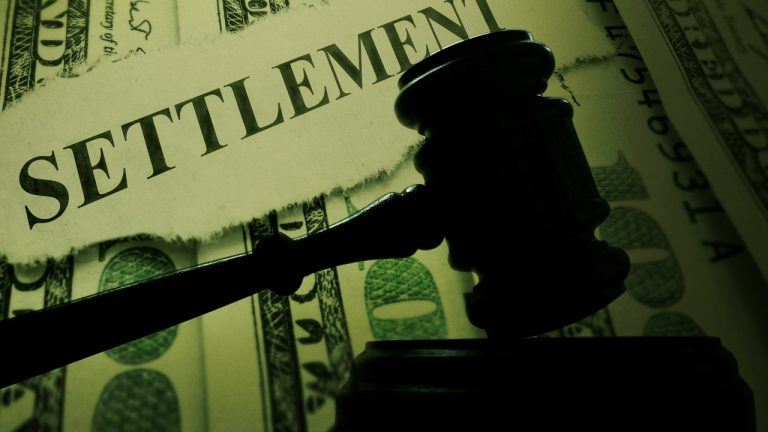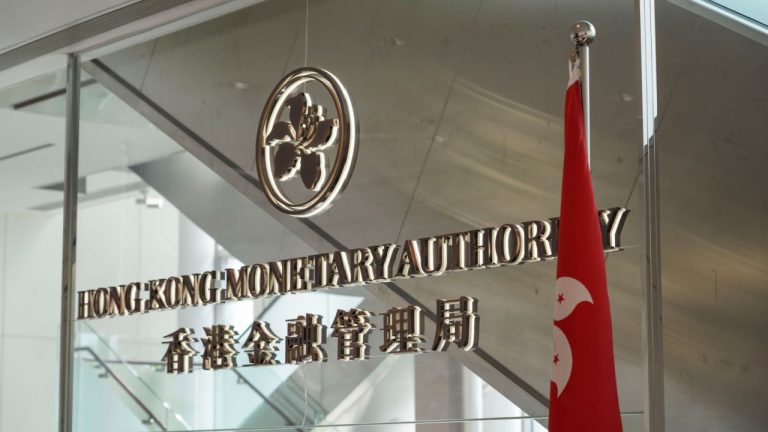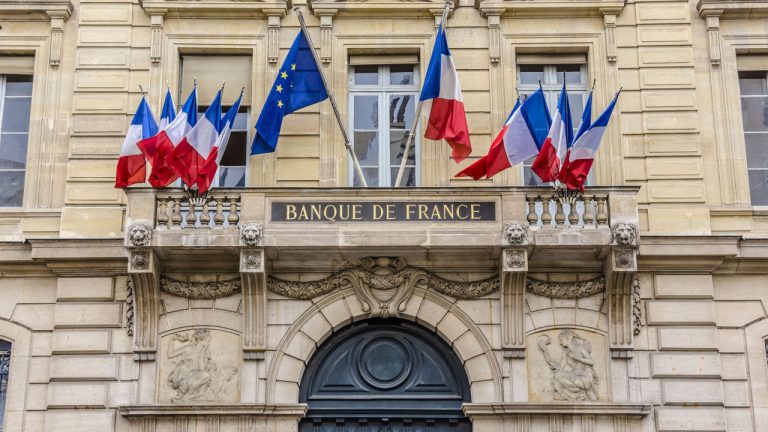 Hong Kong’s Securities and Futures Commission (SFC) has confirmed that the full regulatory framework for digital assets is set to be completed by next year, according to CEO Liang Fengyi. She also noted that 11 more crypto platforms are in the process of applying for licenses, with the first round of assessments already finished. SFC […]
Hong Kong’s Securities and Futures Commission (SFC) has confirmed that the full regulatory framework for digital assets is set to be completed by next year, according to CEO Liang Fengyi. She also noted that 11 more crypto platforms are in the process of applying for licenses, with the first round of assessments already finished. SFC […] Financial authorities in 25 U.S. states have reached a settlement with the cryptocurrency investment platform Abra and its CEO Bill Barhydt for operating without proper licensing. This settlement mandates significant changes in how Abra conducts its operations within these states. Abra Reaches Settlement Over Unlicensed Operations, Agrees to Major Concessions According to a report from […]
Financial authorities in 25 U.S. states have reached a settlement with the cryptocurrency investment platform Abra and its CEO Bill Barhydt for operating without proper licensing. This settlement mandates significant changes in how Abra conducts its operations within these states. Abra Reaches Settlement Over Unlicensed Operations, Agrees to Major Concessions According to a report from […] Companies attracted by the plan to turn Hong Kong into a hub for digital assets should expect strict regulations, the region has indicated. Authorities are preparing new licensing rules for service providers working with cryptocurrencies and guidelines for banks interacting with crypto firms. Crypto Hub Hong Kong Has No Intentions to Adopt ‘Light-Touch’ Regulations Hong […]
Companies attracted by the plan to turn Hong Kong into a hub for digital assets should expect strict regulations, the region has indicated. Authorities are preparing new licensing rules for service providers working with cryptocurrencies and guidelines for banks interacting with crypto firms. Crypto Hub Hong Kong Has No Intentions to Adopt ‘Light-Touch’ Regulations Hong […]
The response comes in relation to a series of claims made by the CFTC in its March 27 complaint against Binance.
Binance CEO Changpeng 'CZ' Zhao has rejected allegations from the Commodities Futures and Trading Commission, arguing that the crypto exchange "does not trade for profit or 'manipulate' the market under any circumstances."
In a March 28 blog post, the chief executive responded to the CFTC’s lawsuit accusing Binance and CZ of engaging in improper compliance procedures and trading, calling the allegations "an incomplete recitation of facts."
My Response to the CFTC Complaint | Binance Blog https://t.co/TadyotM7HN
— CZ Binance (@cz_binance) March 27, 2023
In its complaint, the CFTC alleged that Binance has traded on its own platform using 300 "house accounts" and did not make the proper disclosures to its customers that it was trading in its own market in its Terms of Use.
The CFTC has also accused Binance of keeping the information a “top secret” and alleged that the exchange refused to respond to commission-issued investigative subpoenas seeking information on its trading activity.

“On information and belief, Binance has not subjected the trading activity of Merit Peak, Sigma Chain, or its approximately 300 house accounts to any anti-fraud or anti-manipulation surveillance or controls," the statement added.
However, CZ argued that while Binance "trades" in a number of situations, this is mainly to convert its crypto revenue to cover expenses in fiat or other cryptocurrencies.
"Personally, I have two accounts at Binance: one for Binance Card, one for my crypto holdings. I eat our own dog food and store my crypto on Binance.com. I also need to convert crypto from time to time to pay for my personal expenses or for the Card,” he added.
CZ also refuted claims that his staff engaged in "insider trading," stating that Binance has a 90-day no-day-trading rule for employees, adding:
“This is to prevent any employees from actively trading. We also prohibit our employees from trading in Futures.”
He went further to state that employees are restricted from buying or selling coins where they’ve obtained “private information” about them.
"I observe these policies myself strictly. I also never participated in Binance Launchpad, Earn, Margin, or Futures. I know the best use of my time is to build a solid platform that services our users," he added.
Zhao called the recent CFTC filing both "unexpected and disappointing," as it had been working cooperatively with the regulator for over two years.
Regarding compliance allegations, CZ stated Binance.com has developed “best-in-class” technology to ensure compliance and currently has more than 750 people working to ensure their business operates within the bounds of anti-money laundering (AML) and know your client (KYC) laws:
“To date, we have handled 55,000+ LE requests, and assisted US LE freeze/seize more than $125 million in funds in 2022 alone and $160 million in 2023 so far.”
Related: CFTC calls ETH a commodity in Binance suit, highlighting the complexity of classification
CZ also pointed out that Binance.com holds 16 licenses to offer digital asset trading services, the most of any cryptocurrency trading platform.
This is a developing story, and further information will be added as it becomes available.

Coinbase's vice president of international policy told Cointelegraph the meetings took place in Canberra and Sydney and touched on the government’s token mapping efforts.
The Reserve Bank of Australia (RBA) and Treasury have been holding private meetings with executives from Coinbase, with discussions revolving around the future of crypto regulation in Australia.
Responding to Cointelegraph’s request for comment, an RBA spokesperson confirmed recent reports that these private meetings had occurred, stating that Coinbase met with the RBA’s Payments Policy and Financial Stability departments this week, “as part of the Bank’s ongoing liaison with industry.”
Tom Duff Gordon, Coinbase’s vice president of international policy who was reported to have been flown in for the meetings, also confirmed to Cointelegraph that meetings took place with Treasury in Canberra and Sydney.
Consultation open! Today we released the token mapping consultation paper. This consultation is part of a multi step reform agenda to develop an appropriate regulatory setting for the #crypto sector. Read paper & submit views @ https://t.co/4W2msjhP9B @ASIC_Connect @AUSTRAC pic.twitter.com/OGHuZEGvDp
— Australian Treasury (@Treasury_AU) February 2, 2023
Gordon said that the meetings touched on the government’s token mapping efforts, and Coinbase also “shared insights on global best practices concerning licensing and custody.”
The Australian Treasury's token mapping exercise was announced on Aug. 22, 2022, and is aimed at categorizing digital assets in a way to work them into existing regulatory frameworks.
A consultation paper was released by the Treasury on Feb. 3, for which the Treasury sought feedback from the crypto industry.
Gordon praised efforts from the Treasury, noting that “The Australian Treasury teams continue to impress us with their high level of sophistication and active involvement,” and adding:
“The Australian Treasury's token mapping exercise provides one of the most detailed and thoughtful papers we have encountered on the topic, setting a strong foundation for their forthcoming draft rules for crypto exchanges and custodians.”
Gordon expressed his desire to see the rules “later this year,” adding that he appreciated “the Treasury's comprehensive groundwork.”
In contrast, Coinbase’s co-founder and CEO Brian Armstrong has been critical of the approach to crypto regulation in the United States, echoing accusations that the Securities and Exchange Commission (SEC) is “regulating by enforcement” and claiming that the SEC wants firms to register with them despite there being no way to register.
Well said. There was no way to register (a disingenuous offer).
— Brian Armstrong (@brian_armstrong) February 9, 2023
“Using enforcement actions to tell people what the law is in an emerging industry is not an efficient or fair way of regulating.” https://t.co/6wVZZbQt23
Related: National Australia Bank makes first-ever cross-border stablecoin transaction
Documents recently obtained by the Australian Financial Review under freedom of information laws suggested that crypto legislation in Australia could be dragged out past 2024 and beyond, however, as final submissions to the cabinet are not expected until late in the year.
Coinbase expanded to Australia on Oct. 4, 2022, with Coinbase’s vice president of international and business development — Nana Murugesan — telling Cointelegraph at the time that it was “very impressed with the open door that we’ve received in Canberra and with different policymakers.”

The bill was passed with a vote of 109 in favor and 71 against and will now rely on the approval of president Emmanuel Macron to be signed into law.
The French National Assembly has voted in favor of legislating stricter licensing rules for new cryptocurrency firms in order to harmonize local laws with proposed European Union (EU) standards.
The vote was passed with 109 votes (60.5%) in favor to 71 (39.5%) against. The French Senate has already passed the bill, which now goes to President Emmanuel Macron, who has 15 days to either approve it or send it back to the legislature.
✅ Projet de loi DDADUE dans les domaines de l’économie, de la santé, du travail, des transports et de l’agriculture | Adoption par l’Assemblée nationale, compte tenu du texte de la commission mixte paritaire.
— Assemblée nationale (@AssembleeNat) February 28, 2023
En savoir plus ➡️ https://t.co/CDlQxPrs1b#DirectAN pic.twitter.com/PZ2uuC4MrS
If passed, the new law would oblige France-based cryptocurrency service providers to comply with stricter anti-money laundering rules, show that customer funds are segregated, adhere to new guidelines on reporting to regulators and provide more detailed risk and conflict of interest disclosures as a means to strengthen consumer protection.
The contents of the bill would not, however, apply to the 60 crypto firms registered with the Financial Markets Authority (AMF), the nation’s financial regulator. These firms will continue to comply with the AMF’s rules until the likely passing of the EU’s own crypto regulations with the Markets in Crypto-Assets (MiCA) bill.
The stricter rules would therefore only apply to crypto firms that register from July onwards.
Among the 60-AMF registered companies include Binance, which recently began piloting in-store payments in France with the cloud-based payment platform Ingenico via Binance Pay.
Crypto payments just got easier in France
— Binance (@binance) February 22, 2023
We've recently partnered with @ingenico, a global payment solutions provider, to enable users to pay in crypto through #Binance Pay.
Another milestone for global crypto adoption pic.twitter.com/S8f8Pab7nW
The legislative push for stricter licensing rules was initiated by Hervé Maurey, a member of the French Senate’s finance commission, who in Decemberproposed an amendment to eliminate a clause enabling crypto companies to operate without a full license until 2026.
Bank of France governor, Francois Villeroy de Galhau, also pushed the agenda in a Jan. 5 speech to members of the finance sector in Paris.
Related: Bitcoin business in France: Regulation, education and cash buy frustration
Like many regulators around the world, Villeroy de Galhau cited the need to respond to the recent turmoil in the cryptocurrency market as the motive behind the bill, which he wants to come into effect “as soon as possible.”
While MiCA will likely serve as the blueprint for cryptocurrency market regulation in the EU, he added that France simply couldn’t wait around for the more comprehensive laws enacting the licensing regime on digital asset service providers..
The EU is set to finally vote on MiCA regulation in April after two postponements. A successful outcome would likely see the highly anticipated crypto laws come into force sometime during 2024.
 A new law expanding the regulatory framework for cryptocurrency miners while restricting their access to low-cost electricity has entered into force in Kazakhstan. The legislation introduces a licensing regime for mining with two different categories of licenses that companies will have to renew periodically. President Tokayev Sings Law Regulating Crypto Assets Mining and Exchange in […]
A new law expanding the regulatory framework for cryptocurrency miners while restricting their access to low-cost electricity has entered into force in Kazakhstan. The legislation introduces a licensing regime for mining with two different categories of licenses that companies will have to renew periodically. President Tokayev Sings Law Regulating Crypto Assets Mining and Exchange in […] Financial authorities in Kazakhstan are starting a public consultation on draft changes to the country’s framework for digital-asset trading. The proposals include measures to reduce risks in the crypto market and improvements to the structure of exchange platforms. Kazakhstan’s Financial Hub Seeks to Amend Its Concept for Trading Digital Assets The Astana Financial Services Authority, […]
Financial authorities in Kazakhstan are starting a public consultation on draft changes to the country’s framework for digital-asset trading. The proposals include measures to reduce risks in the crypto market and improvements to the structure of exchange platforms. Kazakhstan’s Financial Hub Seeks to Amend Its Concept for Trading Digital Assets The Astana Financial Services Authority, […] While operations with digital assets are not taxed in Uzbekistan, the government is receiving a growing amount of revenues from the industry. The increase in budget receipts has been attributed to the licensing regime and the introduction of fees for crypto companies. Crypto Exchange in Uzbekistan Pays Over $10,000 a Month to the State Coffer […]
While operations with digital assets are not taxed in Uzbekistan, the government is receiving a growing amount of revenues from the industry. The increase in budget receipts has been attributed to the licensing regime and the introduction of fees for crypto companies. Crypto Exchange in Uzbekistan Pays Over $10,000 a Month to the State Coffer […] France has to adopt a licensing regime for crypto service providers, the head of the country’s central bank has suggested. According to the executive, the need to tighten regulatory oversight stems from the “disorder” in the industry throughout the past year. Licensing Should Replace Registration for Crypto Firms in France, Governor Galhau Says Banque de […]
France has to adopt a licensing regime for crypto service providers, the head of the country’s central bank has suggested. According to the executive, the need to tighten regulatory oversight stems from the “disorder” in the industry throughout the past year. Licensing Should Replace Registration for Crypto Firms in France, Governor Galhau Says Banque de […]